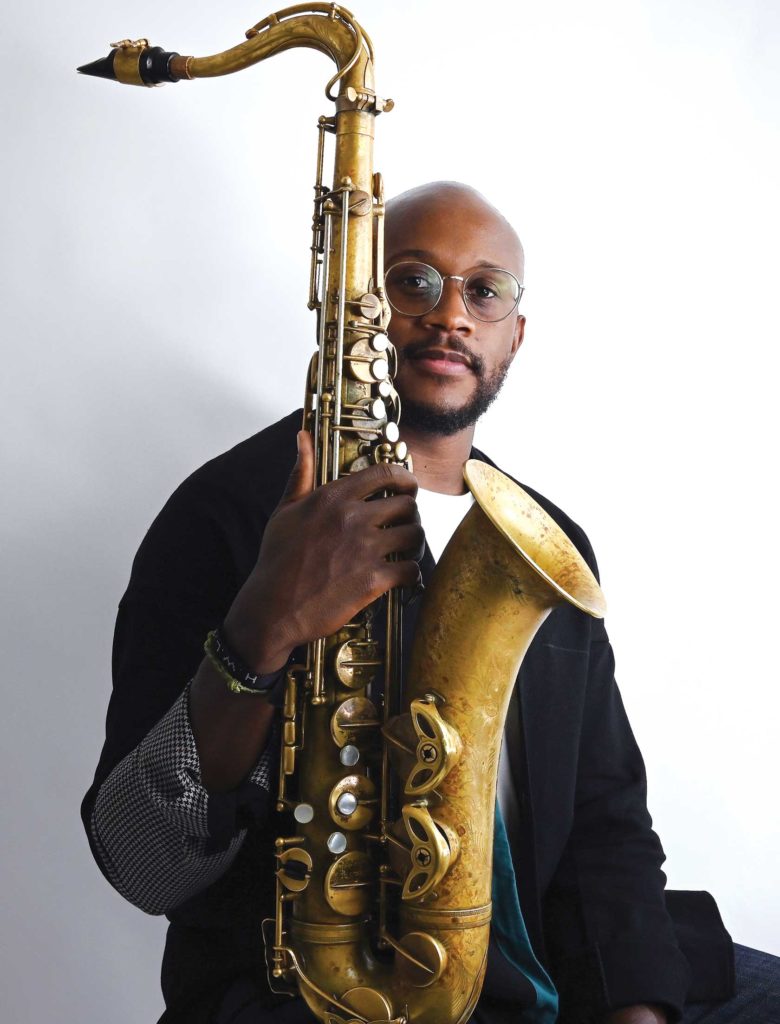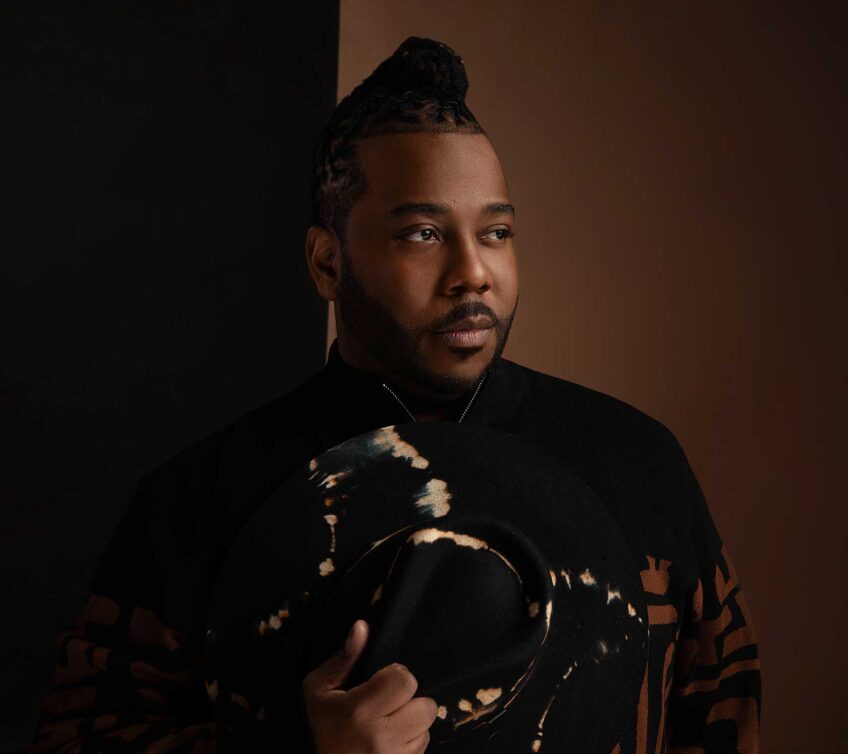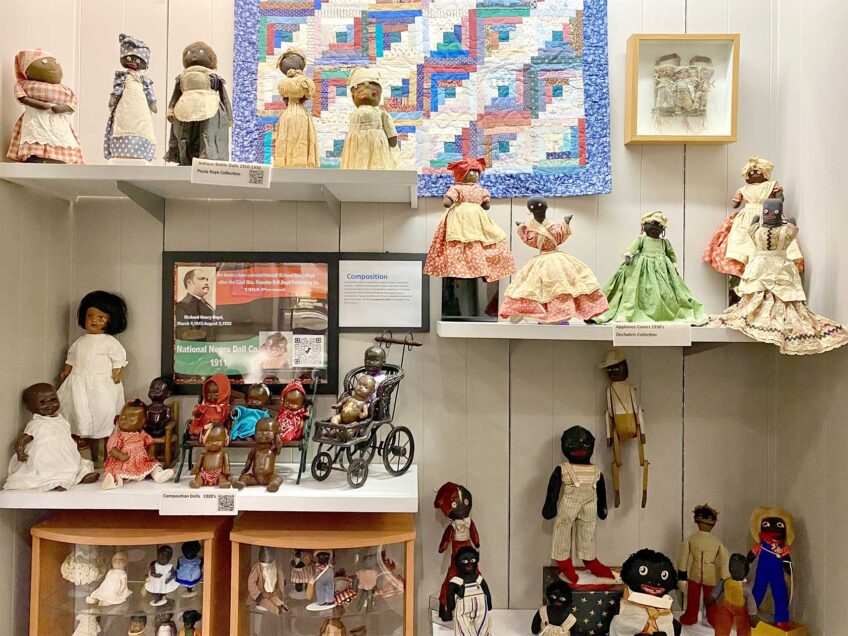
Bostonian Gregory Groover Jr. released his second album, “Negro Spiritual Songbook, Volume 2,” on August 16 on the Jazz Urbane label. A sax player, composer and Boston Public Schools teacher, Groover draws upon his upbringing and current involvement in the African Methodist Episcopal church as well as the rudiments and melodies of jazz. As the son of two well-known ministers, this musician at age 28 has a heart full of messages that are spiritual as well as secular. Groover’s efforts to discover common threads in his life experiences give uncanny depth to his work. The Banner spoke to him in Boston.

Bostonian Gregory Groover Jr. released his second album, “Negro Spiritual Songbook, Volume 2,” on August 16 on the Jazz Urbane label.
Banner: Your new album is subtitled “The Message.” What’s the message?
Gregory Groover: It’s a combination of both originals and my interpretation of Negro spirituals I grew up hearing in church. The original compositions are not liturgical, per se, but do come from a spiritual source. “The Message” is the title track, an original composition, which I wanted to resemble the high point in a service. “Rumble Young Man Rumble,” is an original song that is combined with the spiritual, “Soon I Will Be Done.” The song is dedicated to Muhammad Ali; I wrote it with him in mind. The overall album has the influences of music that are important to me — spirituals, hip-hop, jazz — to be true to myself as a musician, composer and arranger.
How are spirituals a part of jazz?
I would suggest that much like Black American music, there’s the same lineage: Jazz comes out of the blues and the spiritual. You can hear it in the melodies and harmonies, the call and response. Jazz, like spirituals, has depth: The more you listen, the more you learn and the deeper you dive.
What has life been like for you during this pandemic?
Like everyone, a lot of ups and downs. One of the constants is that, along with my colleagues as an educator in the Boston Public Schools, I’ve had to embrace more creative ways to use technology: music collaborations, livestreaming and ways to record remotely. At the beginning, it was scary; we didn’t know how long it would last. But then it provided a much-needed break: a reset. I wasn’t teaching all week and playing gigs on weekends. It helped me be a bit more strategic. And a lot of beautiful things came out of it. A lot of music was written, and the focus turned inward. For example, playing with my band without an audience, I recognized more fully how I was in service to the other musicians and not just those who come to hear us play.
What are your plans for live performance through 2021 and 2022?
A lot of amazing things have happened to me in the past two months. This past weekend I recorded a piece with Solange Knowles that she did for Moncler, called “Mondogenius.” On October 15, I’ll be part of an artist showcase with Jazz Urbane [Café] at the Institute for Contemporary Art. That will include Charles Overton and Bill Banfield. I also have gigs in New Hampshire, like Jimmy’s Jazz & Blues Club in Portsmouth on the 20th. In 2022, I plan to record another Negro Spiritual album, only this time with strings and with more of a gentle interpretation of melodies. There’s a plan, too, for a recording with my band of all new music that I wrote through the pandemic.
What’s missing in the Boston jazz scene?
I would flip that and say that we have all the elements here: students, local musicians, educators, the New England Conservatory, Berklee. Everyone has to be creative about venues: Nia Grace, who owns Darryl’s in the South End, just opened The Underground Café; Jazz Urbane will open in Nubian Square; Performance spaces can be made available in museums and galleries; Institutions are opening their doors. And for those who want to encourage more music: Support the folks who are creating it and come out to hear performances. We have to see what we say we value in Boston. And it’s not just Boston, it’s as a country.


![Banner [Virtual] Art Gallery](https://baystatebanner.com/wp-content/uploads/2024/04/Cagen-Luse_Men-at-store-e1713991226112-150x150.jpg)

![Banner [Virtual] Art Gallery](https://baystatebanner.com/wp-content/uploads/2024/04/Cagen-Luse_Men-at-store-e1713991226112-848x569.jpg)

